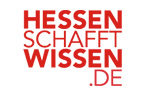The rating project is funded by The Hessen State Ministry of Higher Education, Research and the Arts (HMWK) and carried out by DZHW in cooperation with the HMWK and Hessian higher education institutions (HEIs – both universities and universities of applied sciences).
The rating is part of the higher education development programme in Hesse. Based on political objectives and the ministry’s key questions, the rating provides information on the general situation and special achievements of the rated disciplines in different fields of activity. It is meant to identify strengths, weaknesses and potentials for development of the disciplines examined. Thus, the rating contributes to political steering of higher education in Hesse.
The rating proceeds in four steps:
- First, the rating concept is refined. HMWK, HEI and DZHW draw conclusions from the previous STEM rating and agree on the objectives for the current rating. Then they define the data and information needed for the rating accordingly.
- In the second step, data collection at the HEI is guided by manuals, templates and forms. The data is plausibility checked in part and used as a basis for the deduction of indicators and performance measures. The information thus obtained is presented in data reports for each HEI. The reports follow a standardised structure in order to facilitate comparisons.
- In the third step, an expert committee evaluates the information provided in a peer review process. The experts do not exclusively rely on the reports for their evaluation, but also take part in a hearing of representatives of the HEIs involved where open questions can be discussed. The HEI representatives are also offered an opportunity to comment later on the drafts of the rating reports.
- In the fourth and final step, the rating results become an input into processes of political steering of higher education in Hesse and are discussed in special working groups. The conclusions can result in modifications of target and performance agreements or additional state funding dedicated to innovation and structure development in higher education.
All Hessian universities and universities of applied sciences send representatives to a coordination group. The group is continuously informed about all relevant project steps and contributes to the project management. The group members agree on answers to open questions and function as permanent contact persons for HMWK, DZHW and members of the HEIs, respectively. The coordination group members can also admit representatives of the rated disciplines to their meetings. In addition, the HMWK regularly informs university presidents about the project status at president conferences.
A separate project module concentrates on further development of the higher education reporting system in Hesse in order to make it match actual information needs. First, the data already at hand is analysed with particular regard to questions of value and utility. Then the data stock is compared to the data needed according to the objectives of the future reporting system. And finally, DZHW will develop recommendations on which data exactly should be collected, how often and how the process management should be organised in order to ensure good data quality.

